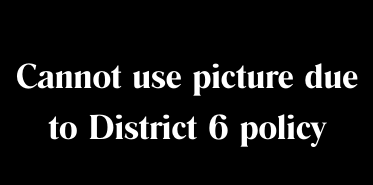If you’re reading this on your phone, STOP! Studies show that cell phones can be detrimental to students’ mental health, school safety, and student focus.
As students, we also use the cell phone in place of graphing calculators, as photography tools for multiple classes, access to staff, and communication with coaches, bosses and extracurricular sponsors.
Which brings us to the point of this editorial: the West Word’s first in at least 40 years. While we acknowledge a phone policy is necessary, District 6’s zero-tolerance phone policy is excessive, punishes parents rather than students, and causes issues between teachers and students. Most importantly, it diminishes student autonomy.
To begin, students lacked a voice in the decision-making process. Individual schools’ student councils, were not taken into consideration about the phone policy. The district also has a District Student Council that was consulted but ultimately ignored. If the purpose of education is to train us and help us become autonomous decision makers, the roll out of this policy went against the District’s own beliefs.
We have also witnessed an increase in conflict between staff and students in the last few days, particularly in the hallways. In the old day’s teachers would tell students to put their phone away and have positive relationships with their students and students would follow the direction. Today teachers who don’t even know the student they’re talking to are facing challenges with maintaining and creating bonds.
There should be exceptions to this policy. For instance, juniors and seniors on off-blocks should have access to their phone. They are not actually in class at the time, and have little need to be reminded to be focused on their learning. In addition, classes like our newspaper production class use cell phones as an industry standard resource for photography and voice memos for interviews. Our media partners in yearbook and video production are facing similar challenges. Then there’s random classes like, Pop Music History, Music Lab, and other electives that incorporated cell phone use regularly.
It’s not just classrooms that are impacted. Our staff sees a lack of school spirit and student participation that a no-cell phone policy worsens. Our communications liaison officer for student council can no longer recruit, support and promote activities and clubs. Club and sports activities are limited from sharing the exciting things that happen around our school every day. What about assemblies? How will a policy be enforced then?
Finally, as the policy demands, schools hold phones until parents pick it up. Our parents work long hours at hard and difficult jobs to take care of us and younger siblings. It is a genuine challenge to pick up confiscated phones during school hours. This policy punishes the wrong group of people.
In conclusion, Mr. Redman in Algebra 2 used to challenge his students to make the mature decision to have their phones but choose not to use them for photo math and AI. Its unfortunate how the adults who run District 6 don’t share that belief that students who work other jobs, participate in community service activities, and sign up to serve and defend the country in the armed forces can’talso be trusted to monitor their own phone usage.








Isael Rascon • Jan 10, 2025 at 8:19 am
this phone policy is bootycheeks
Janet A Call • Jan 10, 2025 at 7:01 am
I appreciate this well-written and persuasive article. As a former GWHS teacher, I think the policy is too stringent—cell phones are an integral part of our modern society. A more reasonable policy that incorporates student input and encourages responsible usage is in order.